Winter… are you over it? For many, finding the right work-life balance that supports our physical and mental wellbeing can be tricky. If your reserves were already low by the time Winter set in, it can feel impossible by now!
During Winter we are generally less active, less motivated and more likely to reach for comfort foods. Bread and cheese anyone? While there are many variables at play, science thinks we are most likely susceptible to ‘the blues’ in Winter due to altered serotonin regulation, as a result of less exposure to sunlight.
So, what can you do?
First, take stock of how you feel. Nourish yourself by making simple changes to your life – earlier bedtime, drinking more water, eating warming and healthy foods. Or you may wish to go further to find out what you need as an individual, to achieve optimal wellness. This may involve a consultation with a Naturopath, including a thorough health assessment to address any underlying health issues and/or nutrient deficiencies, and considering your diet and lifestyle. There are many tools in a naturopath’s toolkit to help get you on track, starting with an empathetic detective’s ear, perhaps pathology testing and of course herbal medicine, nutritional supplements, dietary modifications and/or lifestyle advice. Here’s a small sample of what could be added to a prescription to combat the winter blues:
- Probiotics
Research into the gut-brain connection has finally reached mainstream news, so its not surprising that a very common question I’m being asked at the moment is, “Which probiotic can I take for my mood?”. Our gut bacteria play a significant role in regulating our “feel-good” hormones GABA and serotonin, as well as our “flight or fight” hormone cortisol. The research into probiotics’ effect on mood is still very new, but so far the results are promising. A recent meta-analysis showed Lactobacillus rhamnosus GG has significant anti-anxiety activity. Other players include lactobacillus helveticus and bifidobacterium longum. There are many strains of the same species in probiotic supplements and they work differently (that’s a whole other article!) so it’s worth seeking guidance to find the right probiotics for you. - Crocus Sativus
Crocus Sativus, also known as Saffron, in its concentrated herbal extract form, is often referred to as “liquid sunshine” due to its uplifting effects. Multiple studies have shown that Saffron is comparable therapeutically to selective serotonin reuptake inhibitors (SSRI’s) in depression and anxiety. (Note: Please don’t ditch your SSRI medication without advice from your Doctor.) Saffron is also a potent antioxidant and anti-inflammatory agent. - Vitamin D
Getting your vitamin D levels tested should be part of your annual check-up, particularly if you live somewhere grey like Melbourne! Vitamin D has many important functions within the human body, one of them being the maintenance of serotonin concentrations in the brain. Vitamin D also plays a role in calcium absorption, hormone regulation and immunity. Studies show that roughly a third of Australians are vitamin D deficient. If you are in Melbourne, experts suggest at least 10-20 minutes per day of sun during peak UV exposure (between 10am and 3pm) from April to September. For those of us who work 9-5, you may need a vitamin D supplement, with the dosage based on blood test results. - Rhodiola Rosea
Rhodiola Rosea in another herbal medicine that can be used to enhance energy and improve the way our body adapts to stress. Studies have shown it increases stamina in athletes. It has been shown to increase physical and mental performance, as well as reduce susceptibility to infection including influenza. Rhodiola is available in liquid herbal extract or capsule. - Meditation
Meditation is thought to increase serotonin via its effect on vagus nerve activity. It has the ability to improve our sense of wellbeing. Seek guidance to find a technique that works for you. Downloading an app like Headspace or Calm is a great way to start. Try just five minutes a day to begin with. It’s important not to beat yourself up if you feel you aren’t ‘getting it’… all the great sages started somewhere, right?
So, don’t let the Winter blues get the better of you! Take Epsom salt baths, cook nourishing food, improve your mindset with motivational podcasts, de-clutter your home, have fun with friends and be kind to yourself!
If you would like some assistance to lift you out of the Winter blues, book in for a naturopathic consultation with me at The Urban Alchemist.
Stay warm
References:
https://www.ncbi.nlm.nih.gov/pmc/articles/PMC6034676/
https://www.ncbi.nlm.nih.gov/pmc/articles/PMC5605633/
https://www.ncbi.nlm.nih.gov/pmc/articles/PMC6010276/
https://www.ncbi.nlm.nih.gov/pmc/articles/PMC5787996/
https://www.ncbi.nlm.nih.gov/pmc/articles/PMC5747362/
https://www.ncbi.nlm.nih.gov/pmc/articles/PMC5967372/
https://www.ncbi.nlm.nih.gov/pubmed/30008960
https://www.ncbi.nlm.nih.gov/pubmed/25837277
https://www.ncbi.nlm.nih.gov/pmc/articles/PMC4521101/
https://www.sciencedirect.com/science/article/pii/S0968089609008001?via%3Dihub
https://www.ncbi.nlm.nih.gov/pmc/articles/PMC5721815/


